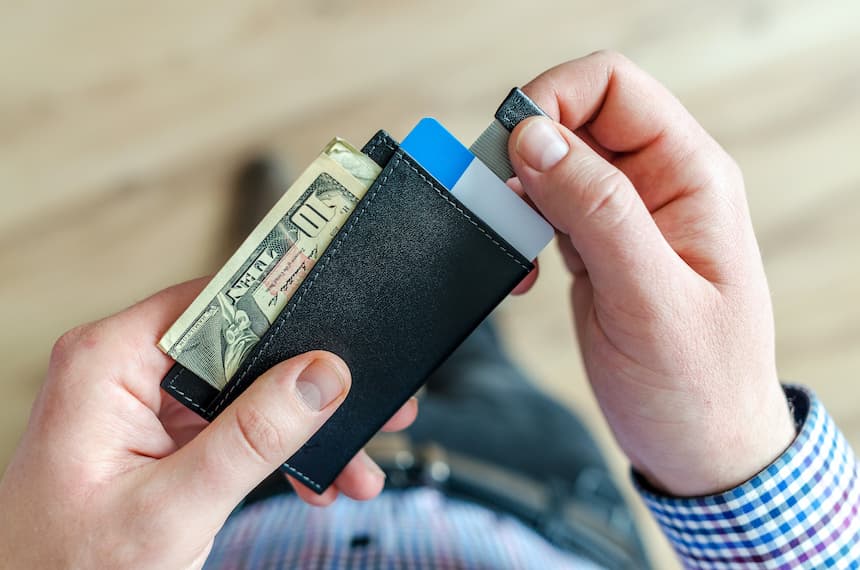
Business credit cards are an essential asset for small and mid-sized business owners.
Choosing the right card boosts your purchasing power and earns valuable rewards (1% cash back if the business meets certain underwriting criteria).
If you’ve started exploring your options, you’ve probably encountered a wide range of business cards, each with its own interest rates, fees, terms, and conditions. You may wonder which type of card is best for your needs, whether you’ll be approved, and how having a business credit card may impact your personal credit.
Below, you’ll find the answers to all these questions and more. When you’re done, you’ll have the information you need to choose the best business credit card for your needs.
What is a business credit card?
A business credit card works in much the same way as a personal credit card: it allows you to borrow money against a revolving line of credit, typically with a 30-day grace period during which you can pay off the balance without an interest charge. Balances that haven’t been paid off by the end of the grace period are charged a predetermined interest rate.
Compared to personal cards, business credit cards may have higher credit limits, more robust reward structures, and features tailored to business operations, such as expense tracking and free employee cards.
Do business credit cards affect personal credit scores?
Whether a business credit card impacts your personal credit score depends largely on the card issuer. Some report all business card activities to the consumer credit bureaus.

Key factors to consider
When you begin comparing business credit cards, it’s common to feel a bit overwhelmed. However, there are a few key features to consider, including:
- Interest rates
If you’re not able to pay off your balance in full each month, the card’s interest rate will impact the overall cost of borrowing. Compare card rates carefully and keep in mind that low introductory rates are only temporary.
- Fees
Although East West Bank’s business credit cards don’t come with annual fees, some business credit cards do, which you’ll need to pay regardless of whether you maintain a balance on your card.
- Credit limits
Credit limits vary, so make sure the card you’re considering allows sufficient borrowing for your business needs.
- Rewards
Many business cards offer cash back for things like office supplies or travel.
- Special features
Some cards offer special features, such as free employee cards. As you weigh your options, consider which of these benefits will have a positive impact on your business.
Secured vs. unsecured business credit cards
While searching for the ideal business credit card, you may also need to decide between a secured or an unsecured card. Secured business credit cards require collateral (often a cash deposit) to secure your line of credit. They're typically easier to qualify for, but the deposit can be a drawback.
Unsecured cards don't require collateral, but you’ll typically need a good credit score to get approved. These cards often offer higher credit limits and rewards and stricter approval requirements. The right card for you will depend in part on your current credit score. If you have trouble getting approved for an unsecured card, you may decide to start with a secured card and switch after you’ve had time to build up your business credit.
How to apply for a business credit card
To apply for a business credit card, complete these simple steps:
1. Research your options
Compare several business credit cards to determine which one is most likely to meet your business needs and goals.
2. Check your credit
Since you’re personally responsible for paying off the credit card balances, you’ll need to show the issuer that you’re a reliable borrower. Although you’re applying for a business credit card, the issuer will still check your personal credit score and history.
3. Gather your information
You’ll need to provide information about your business, including its legal structure, federal tax ID and annual business revenue.
4. Complete your application
Most applications can be completed online. Some card issuers may also accept applications in person, over the phone, or via mail.
During the decision process, card issuers typically review factors such as your business revenue, credit history, and personal credit score. Some issuers will let you know right away whether you’ve been approved. Others may require some time to review your information and provide a decision.
Empower your business with the right credit card
Selecting the best business credit card for your business can impact your operations and bottom line. By taking the time to compare options and consider your needs, you can choose a card that serves your business well.
At East West Bank, we are committed to assisting small and mid-sized business owners and can guide you in choosing a credit card solution that aligns with your unique business objectives.
Ready to take the next step? Explore our corporate credit card, with special features designed to help your business thrive.
Subscribe to the Reach Further Newsletter
Get inspiring stories in your inbox every month.

